Who will manage the "psoriasis ads" of infinite app redirects?
![]() 08/09 2024
08/09 2024
![]() 700
700
From rogue software to big company apps, all are redirecting on splash screens, especially to Meituan and JD.com

Nowadays, as long as a mobile phone is connected to the internet, it's inevitable to encounter this situation: when opening an app, after the splash screen ad, it instantly redirects to another app.
"Open Baidu and it redirects to JD.com, open LiveBar and it redirects to Meituan, open Weibo and it redirects to Taobao." With the recent Olympic Games in full swing, Zhang Zheyuan complained about app redirects in several sports fan groups, "Why does it keep redirecting to other places? Why is it so difficult to watch a game?"
On July 23rd this year, People's Daily talked about mobile splash screen redirects and how to address them. Under this Weibo post, netizens vented their frustrations, and these apps ranged from Pinduoduo, JD.com, Taobao to Tencent, Youku, 360, Weibo, covering almost all mobile apps we use.

Image source: Weibo
Once upon a time, "psoriasis ads" sparked heated discussions about their management. Now, with the emergence of these "cyber psoriasis" in the internet era, it seems we're being pulled back into discussions about how to manage these ad-driven redirects.
01
Splash screen redirects, endless cycle
"My dad's phone has been popping up similar ads for a few days, I thought it was infected. When opening different apps, this page shows up and is hard to close, it's really annoying."
Zhou Kai's recent post on the platform instantly resonated with many people. Under the post, some suggested it might be due to an accidentally installed app and advised him to try deleting it. Zhou Kai upvoted that response and said the issue was resolved after deleting an app called "Tool Shunqingbao". Thought the matter was settled, but then, things started spiraling out of control.
Netizens complained about their own various redirect issues, with too many ads, inability to find a close button, and accidental redirects being the main complaints. Solutions ranged from simply deleting apps, to antivirus scans, to formatting data, with some phones even going black and needing to be sent to a repair shop for thousands of yuan in repairs.
Among the 8 posts he's published so far, only this one has garnered over 1000 upvotes, far exceeding previous engagement.
Clearly, everyone has suffered from redirects for a long time.
On the Black Cat Complaint Platform, searching for "redirects" yields 28,110 complaints, and searching for "software pop-ups" yields 1,888 complaints.
Many of these are complaints about rogue software's malicious pop-ups and redirects.
In more severe cases, rogue apps disguised as "Universal WIFI, Mobile Cleaner Master," etc., use various tricks in splash screen ads. Some kindly remind you that "Trash is full, clean it up now," some sternly warn of "Phone virus, scan and remove immediately," and some even tempt you with "Cash red envelope credited," using coercion and inducement, deeply understanding "human weaknesses."
As soon as you click on these enticing contents, you'll be redirected to another app.
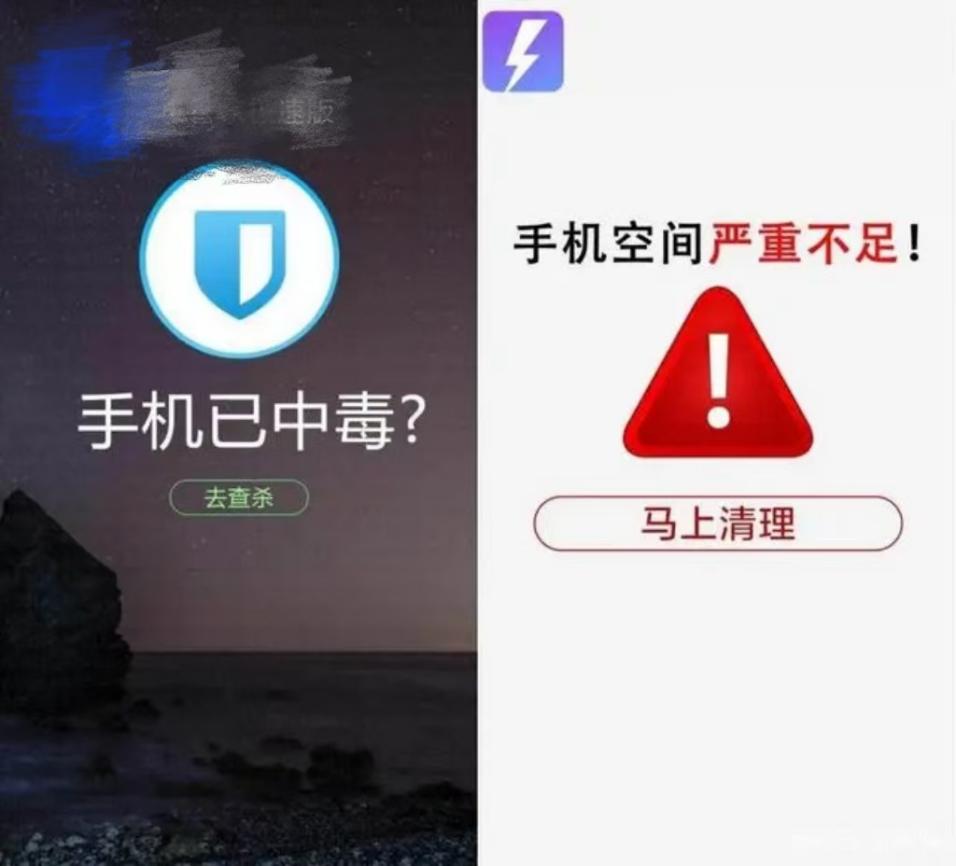
Image source: Some rogue software pop-ups
If malicious pop-ups from these software weren't news, then the increasing number of legitimate software, even mainstream apps from big companies, engaging in crazy redirects is even more infuriating.
02
Big company app redirects are also fierce, especially to JD.com and Meituan
"No matter what app you open on your phone, it redirects to a shopping app on splash screen."
Wu Di recently noticed this trend getting more absurd, "I just paused a video, listened to a song, and suddenly I was redirected to some e-commerce platforms. I answered a phone call, and my phone almost bought me a computer."
Even more annoying, the slightest tilt can trigger a "shake to redirect" to a new platform. Even if you hold the phone much steadier than usual, or even place it on a table, it sometimes still completes the "irreversible" redirect. Trying to close or exit, but no buttons can be found or clicked, pressing the back button two or three times is the only way to truly exit, sometimes with one or two fake close buttons hidden...
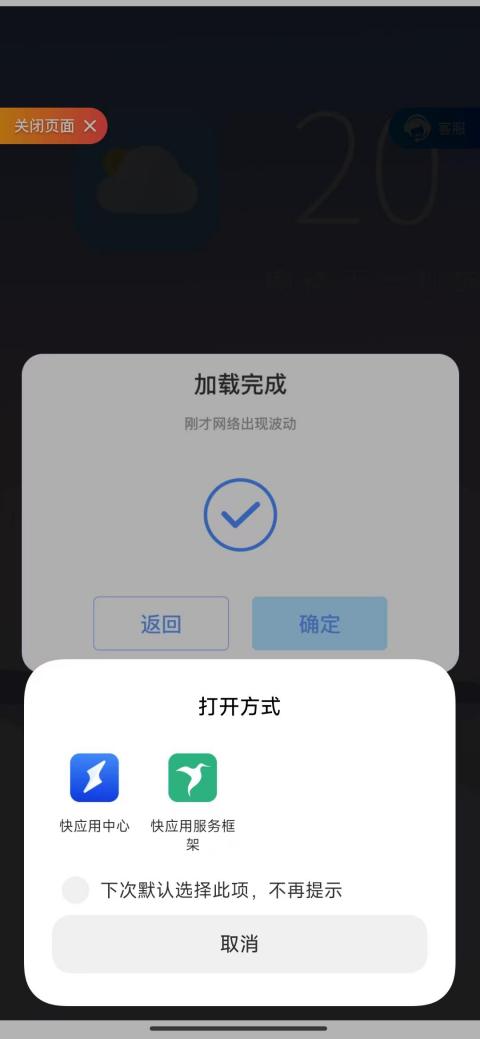
Image source: Splash screen redirect ad from an app
Some even said, "The speed of redirecting to open another app's page is much faster than me actually opening that app."
We conducted an experiment with several apps that frequently show pop-ups and have over 100 million downloads on app stores.
We first tested the redirect behavior of news apps.
Opening the community app Hupu, the splash screen ad usually redirects to either JD.com or Taobao/Tmall, alternating between the two. In our 20 openings, JD.com appeared 12 times, while Taobao/Tmall took the remaining 8 times.
For the sports news app LiveBar, splash screen ads mainly redirected to JD.com and Meituan. Unlike Hupu, these two types of ads appeared in series, i.e., several consecutive redirects to JD.com followed by several consecutive redirects to Meituan, repeating the pattern. In our 20 openings, there were 8 redirects to JD.com's app, 10 to Meituan's app, and the remaining 2 to other third-party apps.

Image source: Splash screen redirect ad from LiveBar app
Next, we tested the redirect behavior of music apps.
QQ Music's splash screen ads were mainly for Meituan and JD.com. In our 20 app openings, 13 were for Meituan, 6 for JD.com, and the remaining 1 was for an internal music festival event.
While Netease Cloud Music's splash screen ads occasionally linked to other e-commerce platforms like 1688 or internal music festival events, in most cases, it was JD.com. In our 20 splash screens, JD.com appeared 17 times, accounting for 85%. The remaining 3 were for internal music festival events.

Image source: Splash screen ads from some apps
Finally, we tested social apps.
Tantan's splash screen mainly redirected to Taobao, third-party apps, and Meituan, appearing 8, 6, and 6 times respectively. And every time after closing the background and reopening, a redirect would occur.
Soul's redirects were relatively fewer, only reappearing after several background closures. The main destinations were Meituan and its own app. In our 20 pop-ups, Meituan took 18 of them.
It's worth mentioning that many of the third-party apps redirected to were supermarket mini-programs like Walmart's, or other third-party apps, but more often than not, they were e-commerce platforms, with JD.com and Meituan being the primary destinations.
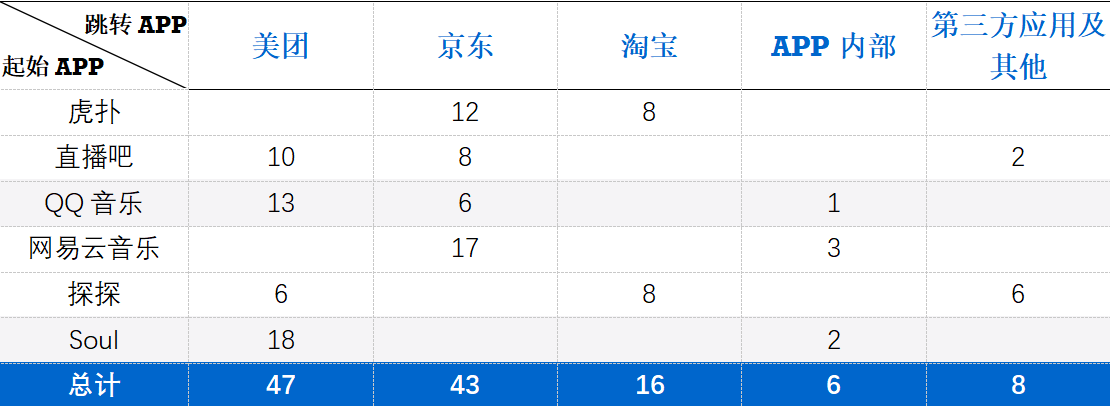
Splash screen redirect behavior of mainstream apps. Image source: Newou drawing
In our total of 120 tests across 3 categories and 6 apps, 47 redirects were to Meituan, 43 to JD.com, accounting for 39.17% and 35.83% respectively, with Taobao coming in third.
These redirected apps not only spend big money on splash screen ads to drive traffic and entice clicks. Some e-commerce apps even hide prices on the redirected landing pages, requiring users to log in to the redirected app to see specific prices.
Why do these apps, which seemingly don't lack traffic, need to attract clicks in this way?
03
Big companies' traffic anxiety and playing hide-and-seek with regulators
Traffic has always been the core of the internet world. Possessing traffic means possessing "power" in the internet world. There are only three ways to monetize traffic in the internet: games, e-commerce, and advertising. Redirects are a way to monetize traffic through ads, while e-commerce after the redirect is another monetization method.
TikTok, Kuaishou, and Xiaohongshu have been domestic internet traffic black holes in recent years, sucking up a large portion of new and transferred traffic in the internet world. They have become the traffic holders in the domestic internet world.
However, major e-commerce platforms have never had a stable internal traffic pool and need to purchase traffic from other traffic holders to effectively drive traffic to maintain daily, monthly active users and new traffic.
Of course, Taobao, as the pioneer of domestic e-commerce, has a vast internal traffic source. Platforms like Youku, Damai, and Xianyu bring significant traffic support to Taobao/Tmall. Even so, in our tests, Taobao was still willing to take the third spot.
In contrast, JD.com and Meituan are the most traffic-anxious among these internet giants.
In fact, as early as the third quarter of 2018, when JD.com's annual active user count decreased by 8.6 million sequentially, Liu Qiangdong was already concerned about JD.com's traffic. JD.com once hoped to use Jingxi to compete with Pinduoduo and Taote. But by the time Jingxi was shut down, forget about success, even people who had heard of the platform had to sift through information to find out about it.
The lack of an internal traffic pool has always been JD.com's pain point, while Meituan, as an O2O platform, inherently lacks an internal traffic gene.
Ethan Zuckerman, the father of pop-up ads, once apologized for inventing this form of advertising.
But the purpose of marketing is far more important than the method. When one cannot control people's preferences, "being remembered" becomes the ideal outcome. Strengthening memory is precisely what brands need.
For major apps in the internet era, they clearly understand that this type of ad that easily leads to accidental clicks can tarnish their reputation and goodwill. But for them, the thirst for traffic and the need for traffic diversion are inherent. For these apps with strong monetization capabilities, the existence of such ads seems necessary. When competing with platforms naturally blessed with traffic, diverting as much traffic as possible becomes an effective defensive tactic.
The latest "China Network Audio-Visual Development Research Report (2024)" shows that 71.2% of surveyed users shop online due to watching short videos and live streams, and over 40% of internet users consider short videos and live streams as their primary consumption channels.
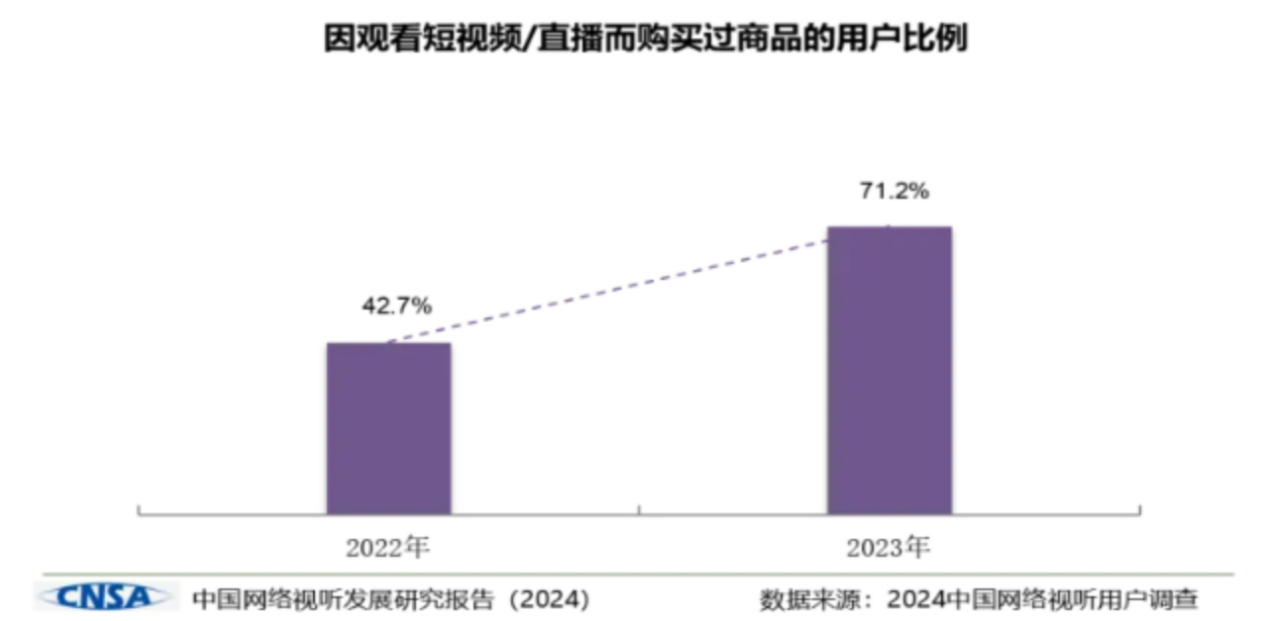
Image source: "China Network Audio-Visual Development Research Report (2024)"
Under this trend, e-commerce giants flock to the content sector, but it's unrealistic for JD.com and Meituan to make short-term breakthroughs in the content sector where they're not proficient. Therefore, constantly driving users to their own apps through pop-up redirect ads to remind them to use them becomes the last stubborn resort, a simple and direct method.
If lack of traffic is the internal reason why Meituan and JD.com focus on redirect ads, inadequate regulation is an external factor that cannot be ignored.
The "Regulations on the Push Service of Internet Pop-up Information" came into effect on September 30, 2022. Article 5 emphasizes that "pop-up ads should be identifiable, clearly labeled as 'ads' and have a close button to ensure one-click closure." In the past, apps like Xianyu and Gaode Map were reported by the Ministry of Industry and Information Technology for "information windows without close or exit icons."
Not only that, relevant departments have issued relevant regulations more than once, but each time, they only addressed the symptoms and not the root cause. As soon as they were issued, splash screen redirect ads would "disappear" for a while, only to resurge over time.
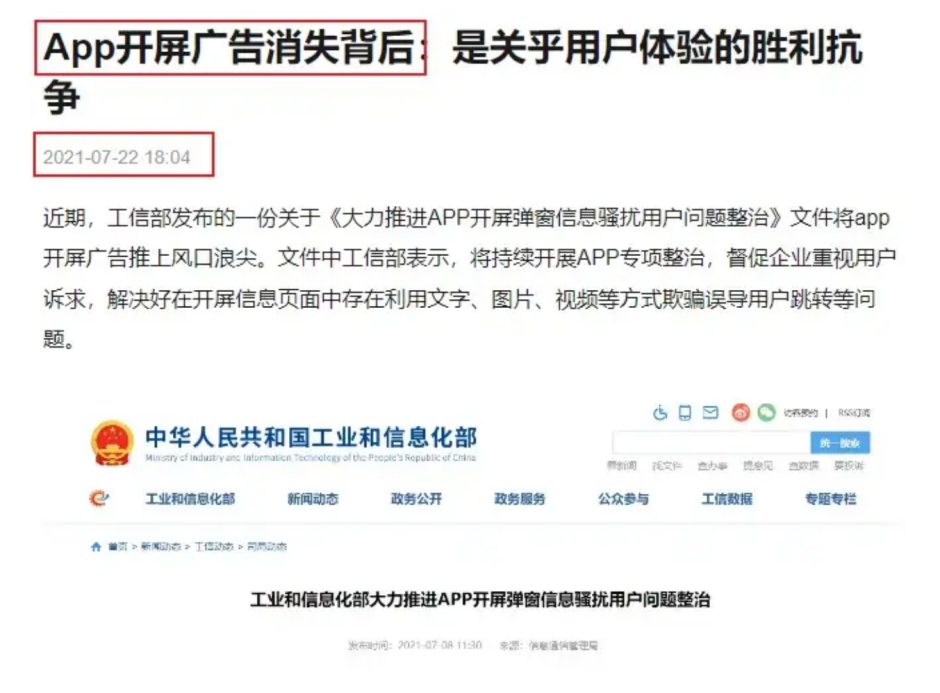
Image source: Ministry of Industry and Information Technology of the People's Republic of China
The fact is that the inability to close ads with one click still exists, and there are countless examples. Especially in the increasingly competitive e-commerce environment, before major sales events, splash screen ads increase, driven by metrics like clicks, GMV, and MAU. Under the pressure to meet these targets, user experience and tactics' aesthetics take a back seat.
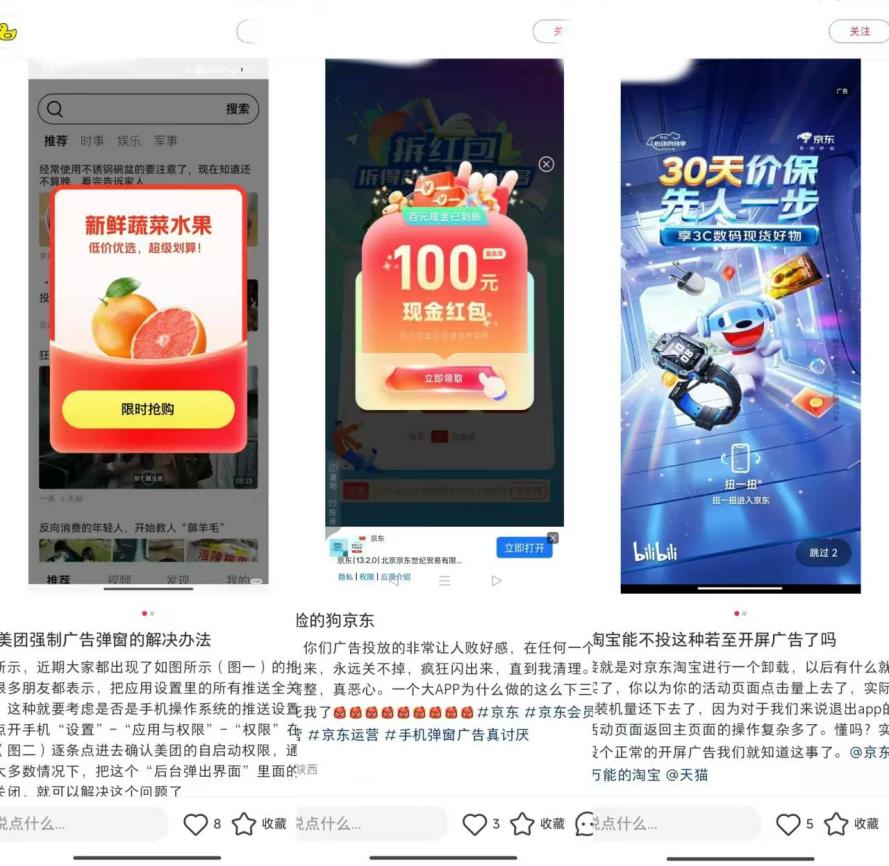
Image source: Xiaohongshu
As several major e-commerce platforms have recently announced prioritizing user experience, instead of exhaustively trying to please users within the platform, thinking about better ways to drive traffic might yield better results.
If this cyber psoriasis marketing approach continues, it's likely to backfire even more.







